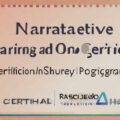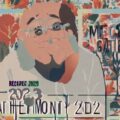In a world where the wellness movement is often dominated by a monolithic narrative, it’s crucial to shine a light on the diverse voices contributing to the conversation around recovery and self-care. Among these voices are Black and Indigenous Women of Color (BIWOC), whose unique experiences and perspectives provide invaluable insights into the journey of healing and empowerment. In this article, we highlight 22 recovery-focused BIWOC who are making waves in the wellness community and beyond.
Why Representation Matters in Recovery
Representation in the recovery community is vital. It allows individuals from various backgrounds to see themselves reflected in the stories of resilience and success. For many BIWOC, culturally relevant recovery resources can be the difference between feeling isolated and feeling supported on their journey to wellness.
Influential Voices in the Recovery Space
From therapists and authors to activists and influencers, these 22 BIWOC are leading the charge in creating inclusive spaces and resources for those seeking guidance and community in their recovery journeys.
- Dr. Thema Bryant-Davis – Psychologist and Author
- Layla Saad – Writer and Speaker
- Tricia Hersey – Founder of The Nap Ministry
- Nalgona Positivity Pride – Eating Disorder Awareness
- Ijeoma Oluo – Writer and Speaker on Racial Justice
- …and many more inspirational figures.
Empowering Communities Through Healing
These leaders not only advocate for personal recovery but also work towards healing entire communities. They understand the interconnectedness of individual wellness and collective liberation, offering support that transcends the personal level.
How to Support BIWOC in the Recovery Community
Supporting these women can be as simple as following them on social media, reading their books, or engaging with their platforms. By amplifying their voices, we contribute to a more diverse and empowering recovery narrative.
FAQ
Why is it important to follow BIWOC in the recovery space?
Following BIWOC in the recovery space helps to diversify the narrative around wellness and ensures that a range of experiences and perspectives are represented and heard.
Can anyone benefit from the insights of these BIWOC, regardless of their own background?
Absolutely. The insights and experiences shared by these women are universal in many aspects of healing and personal growth, making them beneficial to a wide audience.
How can I find more BIWOC to follow in the recovery community?
Look for hashtags, online communities, and platforms dedicated to recovery and wellness, and pay attention to who is leading the conversations and the work being highlighted.
What is the impact of supporting BIWOC in the wellness industry?
Supporting BIWOC in the wellness industry helps to break down barriers, foster inclusivity, and ensure that support systems cater to the needs of a diverse population.
How can I actively support these women beyond following them on social media?
Actively supporting these women can involve purchasing their books, attending their workshops, donating to their organizations, and advocating for their presence at events and in media.









